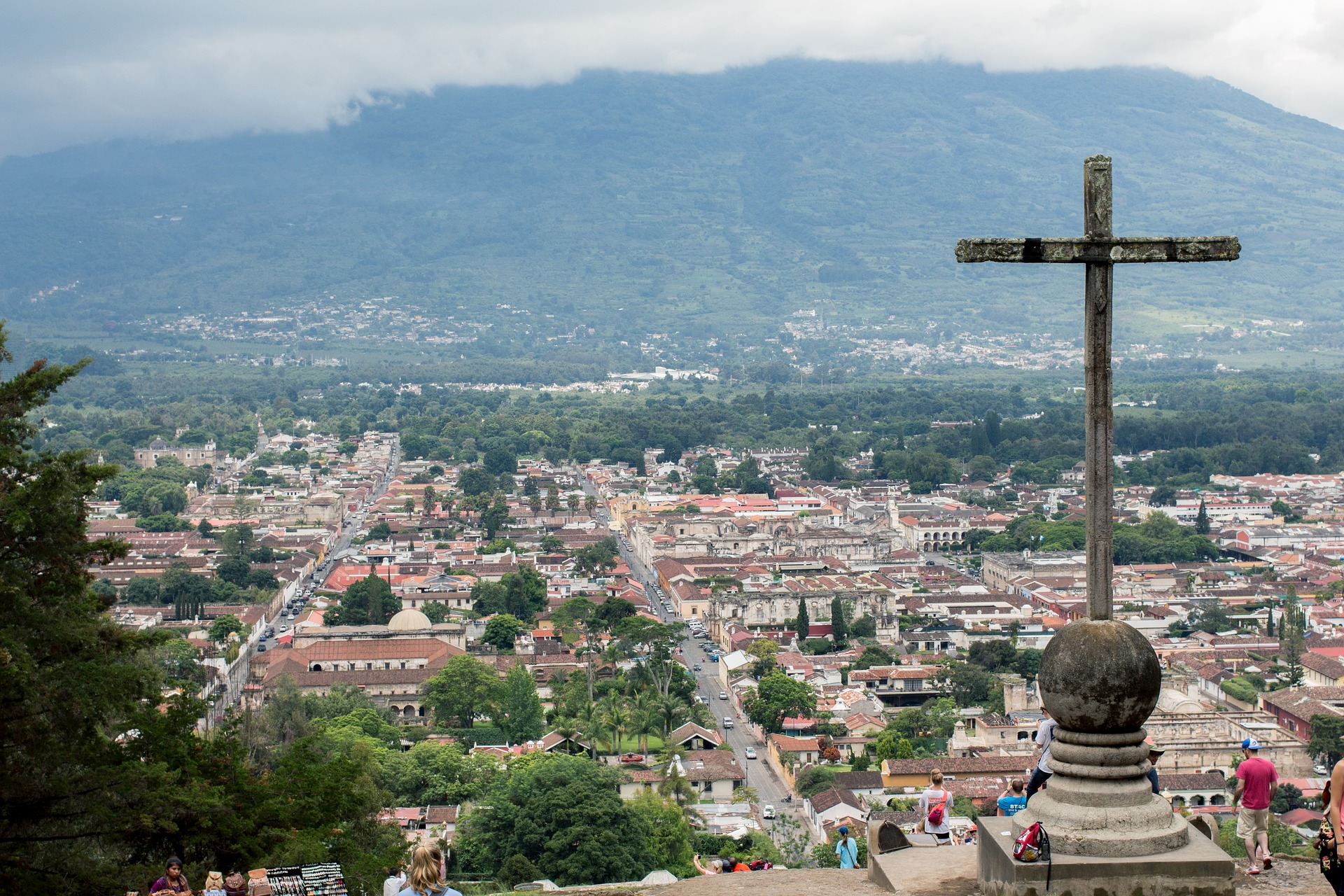Guatemalan Slang: 22 Most Used Terms You Will Hear From A Local

Get our free email course, Shortcut to Conversational.
Have conversations faster, understand people when they speak fast, and other tested tips to learn faster.
More infoAt BaseLang, there are many students whose goal is becoming conversational in Spanish before traveling to a Spanish speaking country. Whether you are a future backpacker, or a future expat, we encourage you to embrace the local slang terms in any country you visit, and in this post, we will give you a list of the very best Guatemalan slang.
In case you missed it, here is a quick round-up of the countries we covered thus far in our Spanish slang series.
1) ¡Aguas!
We all know that “agua” means water, but in Guatemalan slang, adding an “s” (i.e. aguas) means “careful!” or “look out!”. In fact, this term is pretty common in all of Central America, especially in Mexico
- Aguas cruzando la calle, ¡recuerda! – Careful crossing the Street, remember!
- ¡Aguas! El piso está mojado – Careful! The floor is wet
2) Charnel
A commonly used word for automobiles.
- Todos los días voy al trabajo en mi charnel – I go to work on my car every day
3) Bochinche
An expression commonly used in Central America to refer to a chaos or disorder caused by several people, or, as an alternate meaning, a lie. Also used in Venezuela when referring to chaos and disorder.
- Me estás diciendo bochinche -You’re lying to me
- Cuando salió el profesor se armó un bochinche – Everyone started screaming when the teacher went out
4) Boquitas
Used as slang for snack food, or more commonly for appetizers before lunch or dinner.
- Mientras vemos el partido podemos comer unas boquitas – We can snack on something while we watch the game
5) Brocha
A term for a public bus helper who collects the fares, helps you find a spot, and gives everyone a heads up before the next stop.
- Cuando subas le pagas al brocha – When you go up, give the money to the brocha
6) Burra
In most Spanish speaking countries, this word is a term for a female donkey, but in Guatemalan slang, it’s used to refer to a bus.
- Tuve que agarrar dos burras para llegar acá – I had to take two buses to get here
7) Caite
Slang for comfortable, sandal-like shoes normally worn at home.
- Llegué cansado del trabajo, voy a ponerme mis caites – I’m came in tired from work, I’m gonna put on some comfortable shoes (sandals)
8) Canche
This is Guatemalan slang term for anyone with blonde or light colored hair.
- Llevo unos meses saliendo con una canche – I’ve been dating a blonde girl for the past few months
9) Casaca
Casaca is a slang term, with two very concrete meanings – the first one being a lie, and the second, as an expression used when something is really easy to do.
- Lo que te dije hace rato era pura casaca, quería ver como reaccionabas – What I told you a while ago were all lies, I just wanted to see how you’d react
- Yo me puedo quedar haciendo este trabajo que es una casaca – I can keep doing this job, it’s really easy
10) Cerote
In most Spanish speaking countries, this word means “dung”, but in Guatemala, it is used as a term of endearment for a friend.
- ¿Qué pasó, cerote? – What’s up dude?

Unsure what to learn next?
Download the exact curriculum that thousands of BaseLang students have used to become fluent in Spanish.
Download Guide Now!
11) Chapín
Slang term used by Guatemalans, to talk about other Guatemalans, in a non-offensive way.
- Cuando viajé a Estados Unidos conocía a un chapín casi con cada cuadra que caminaba – When I traveled to the US I met a Guatemalan almost every block I walked
12) Chilero
Chilero basically means “cool,” “good,” or “nice” as an adjective.
- Ese bolso está bien chilero – That bag is really cool
13) Chinchar
A verb used which means “to annoy”, and is normally used in a vulgar way.
- Deja de chincharme que tengo trabajo qué hacer – Stop bothering me, I have work to do
14) Chispudo
Chispa mean “spark”, and so chispudo is something along the lines of “sparky” and used to refer to someone who responds to requests quickly, or that will grasp complicated concepts faster than the average. Similar to describing someone as “on the ball” in English.
- Daniel es un niño muy chispudo, le va bien en el colegio – Daniel is a really smart kid, he’s doing great in school
15) Chivas
A term for things or stuff that you can be considered the owner of.
- Dejaste todas tus chivas en el escritorio – You left all your stuff at the desk
16) Chucho
Chucho is also the Guatemalan slang for a dog, but don’t get distracted, because “chucho” could also mean a car tire in this country, so just to be safe always assume it means a dog, unless you’re talking about cars.
- Nos encontramos un chucho muy lindo en la calle – We found a really cute dog on the street
17) Clavo
Clavo literally means nail, but in Guatemalan slang, it could mean something close to having a problem, with something or someone.
- Tienen un clavo desde ese día – They have had a problem since that day
18) Majunche
What Guatemalans call a small banana commonly seen in Central America. It’s a bit shorter than most kinds, with a thicker peel, usable both when ripe or green for cooking.
- Tenemos dos racimos de majunche por madurar acá – We have two hands of bananas that still aren’t ripe enough
19) Patojo
A word used as an alternative for “kid” or “child”.
- Hay unos patojos jugando al fútbol en la calle – There are some kids playing soccer on the street
20) Pedorro
A smug of presumptuous person.
- Él siempre actúa como un pedorro con nosotros – He always gets all boastful with us
21) Pelar
To gossip, criticize or talk behind someone’s back. This term is used when someone is talking about another person, but only in a bad way, describing defects or bad taste.
- María se la pasa pelando con cualquiera – María is always gossiping with anyone
22) Peluche
To rest or relax, or be relaxed, or to not do much (we can relate to this one).
- Esta semana ha sido puro peluche en la oficina, estamos esperando ordenes de arriba – We’ve been doing nothing this week at the office, we’re still waiting for orders from the higher-ups
23) Pisto
Pisto is Guatemalan slang for “money” or “cash”, and always refers to physical money.
- Ya no me queda pisto, mejor nos vamos – I don’t have any money left, let’s leave
24) Sho!
This one doesn’t have a direct translation. People use this word to quickly get the attention of a group, and depending on the delivery it could get to be quite effective. Similar to “Hey!” in English.
- ¡Sho! ¡Sho! Este es el plan – Hey, listen here, this is the plan
25) Shute
We all know a “shute”, which in Guatemala is a term for a person who is interested in things that aren’t their business. This term isn’t quite an insult, but is an alternative for calling someone nosey.
- Vete de aquí, shute, esto no te incumbe – Get out of here man, this does not concern you



